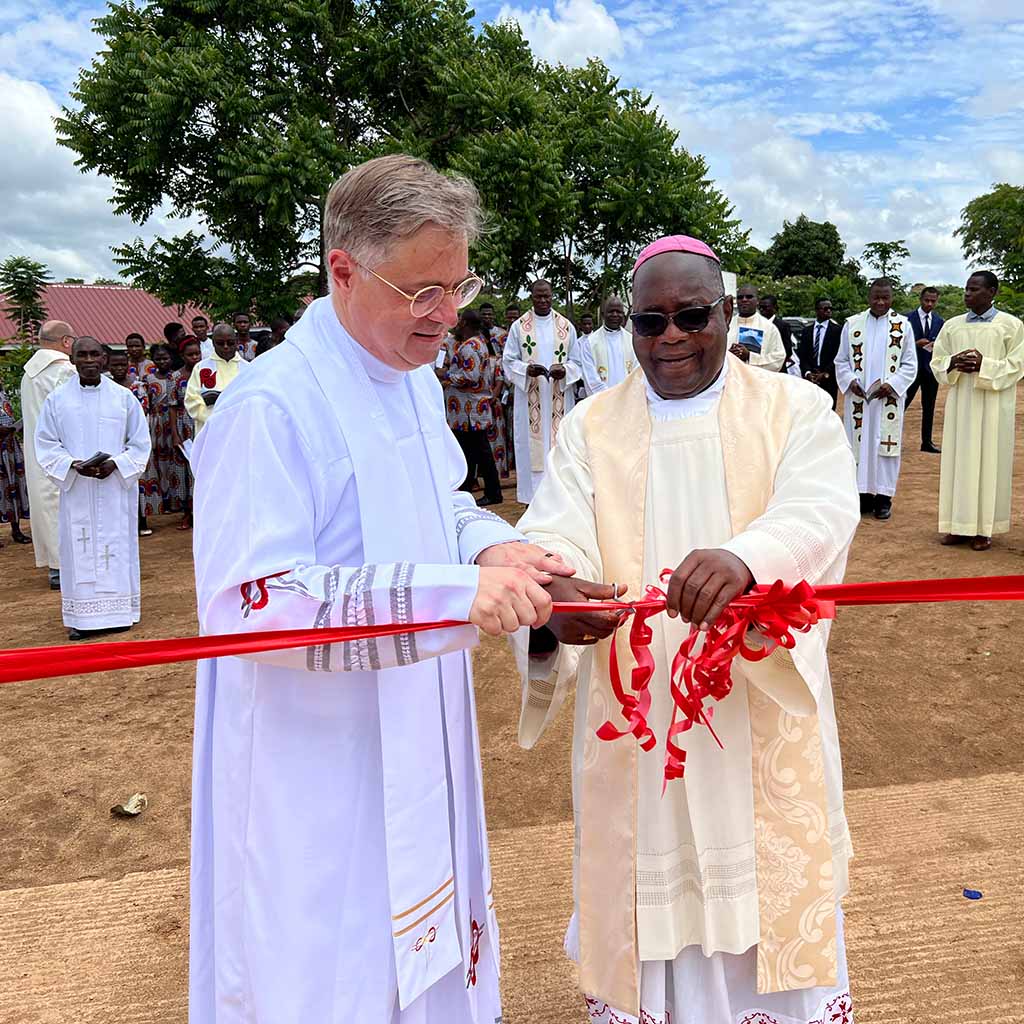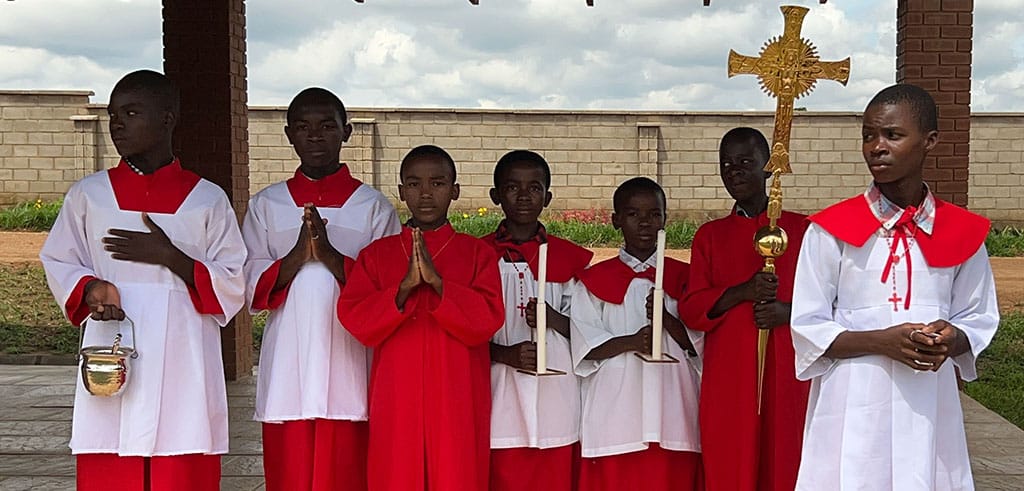
Malawi's Pallottines bring hope to the people
House dedications in Malawi strengthen Pallottine Presence
The work of the Pallottines in Malawi is assuming shape. On January 12th, the St. Vincent Pallotti Formation House of Philosophy was inaugurated in Balaka (Mangochi Diocese) by Bishop Montfort Stima. The inauguration of the St. Vincent Pallotti Administration Building in Lilongwe (Diocese of Lilongwe) was held on January 14th by Archbishop George Desmond Tabala.
The inaugurations of the two houses mark a first climax of the Pallottine presence. For this reason, Provincial Fr. Markus Hau, Mission Secretary Fr. Reinhold Maise, Br. Bert Meyer (Staff in the Mission Secretariat), as well as Fr. Alexander Diensberg, member of the Provincial Council, had also traveled to the African country to honor the interim goal of a development that began 20 years ago. At that time, thoughts began to open a Pallottine community in Malawi. More than ten years later, on December 8th, 2016, the time had come with the takeover of the parish in Kaphatika.
In addition to the formation house in Balaka and the administration building in Lilongwe, the Pallottines also acquired the Bokosi farm in the Thyolo district, which is to be continued agriculturally. In addition, the novitiate will be built there in the next few years.
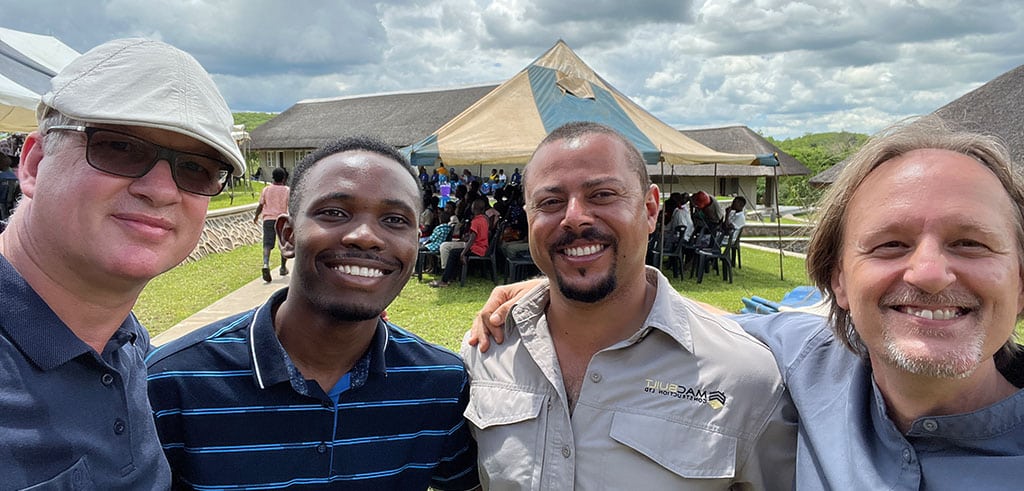
Special thanks were extended to Br. Bert Meyer (left on the picture, with team), who spent five years on site in Malawi and played a decisive role in the construction of the houses.
"Wonderful Place in the Wasteland"
During the inauguration of the Formation House in Balaka, Bishop Montfort Stima, emphasized that the Pallottines had created a wonderful place in the midst of a wasteland, virtually “a city on the mountain, visible from afar.” This transformation must now continue, he said. For the students who will live there should also transform their hearts, even if this is difficult, the bishop said, giving the necessary steps: First listen to the Word of God, and then reflect on it before moving into speech and action. The bishop also asked the Pallottine Fathers to challenge society with their spirituality and to “resistively engage” in socio-political discourse.
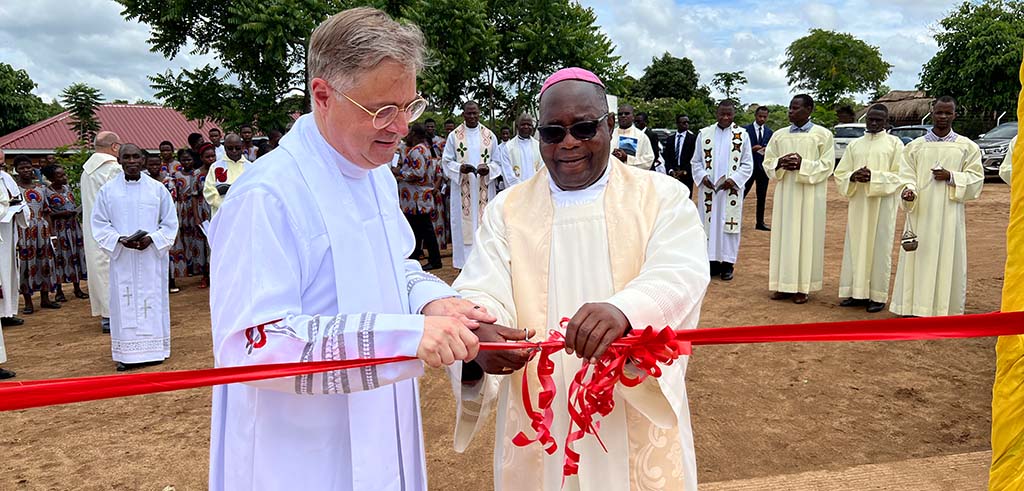
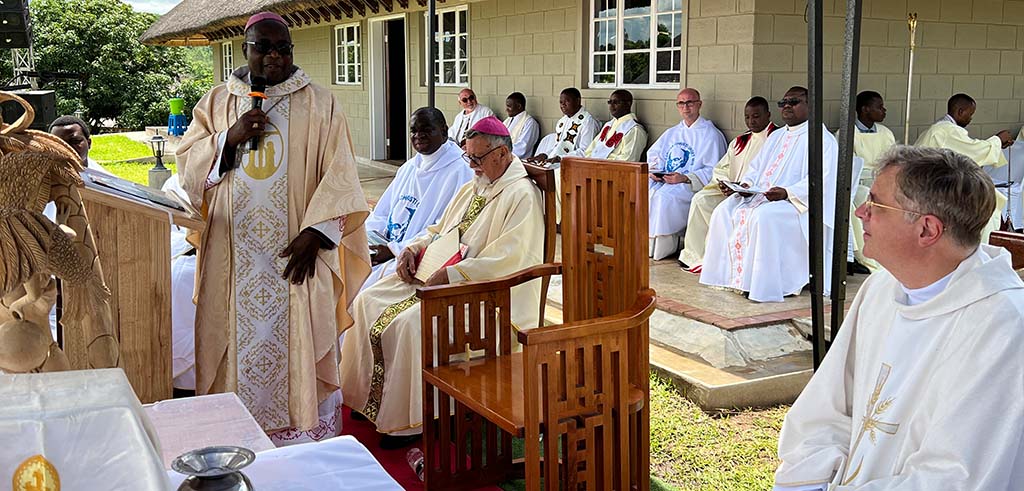
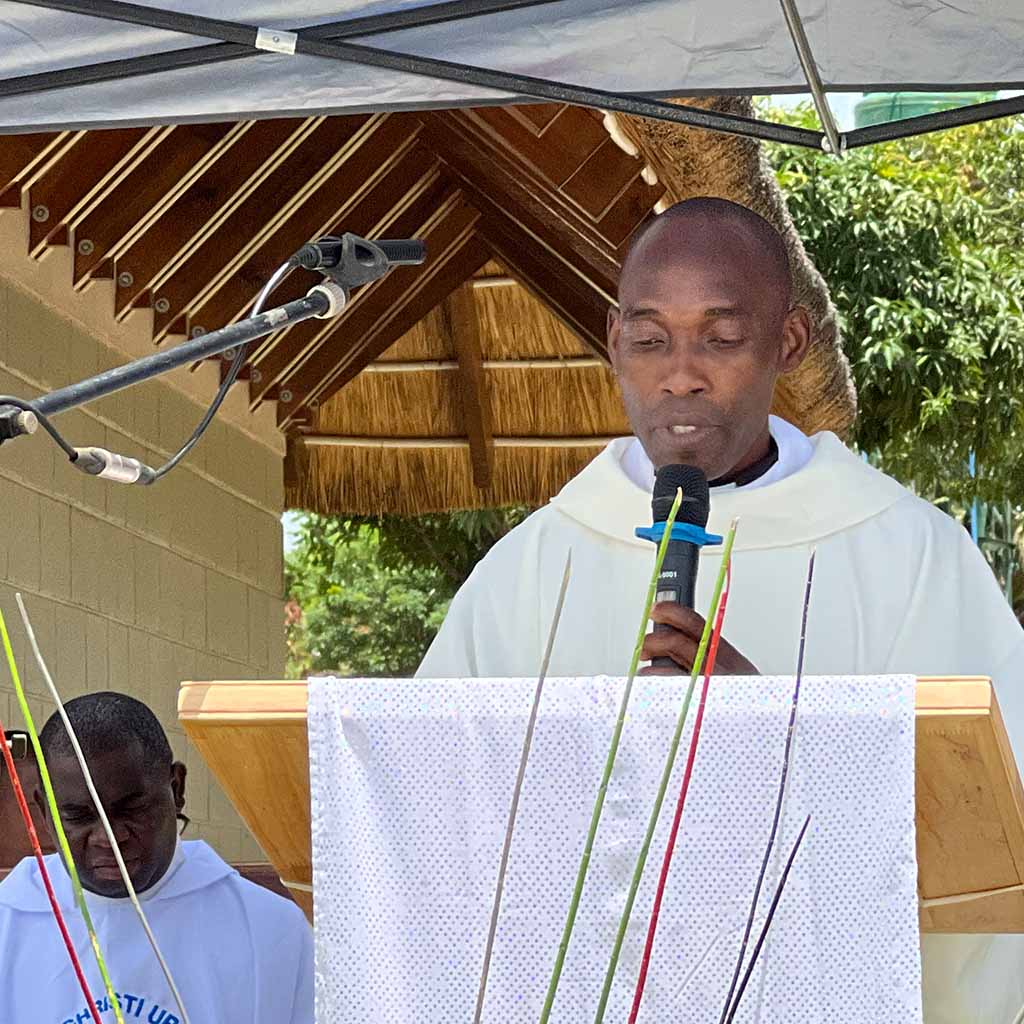
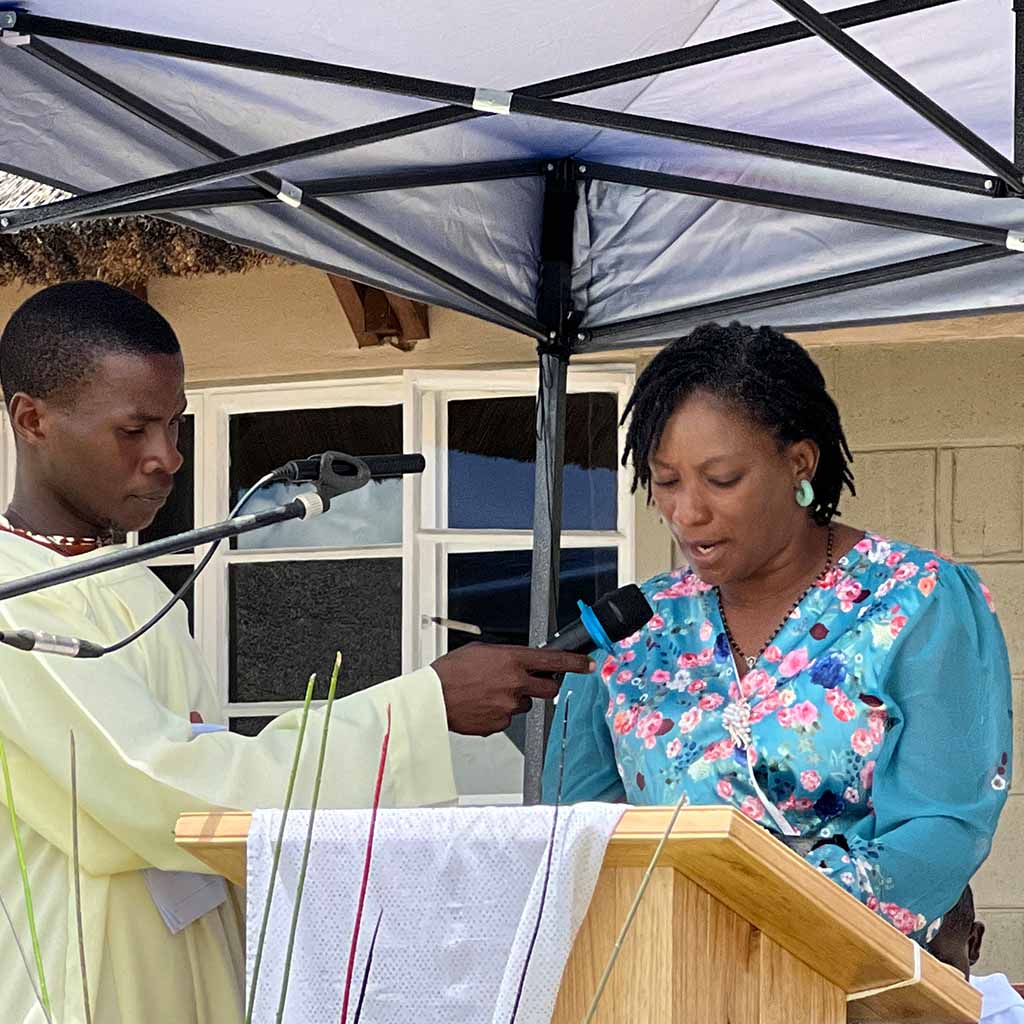
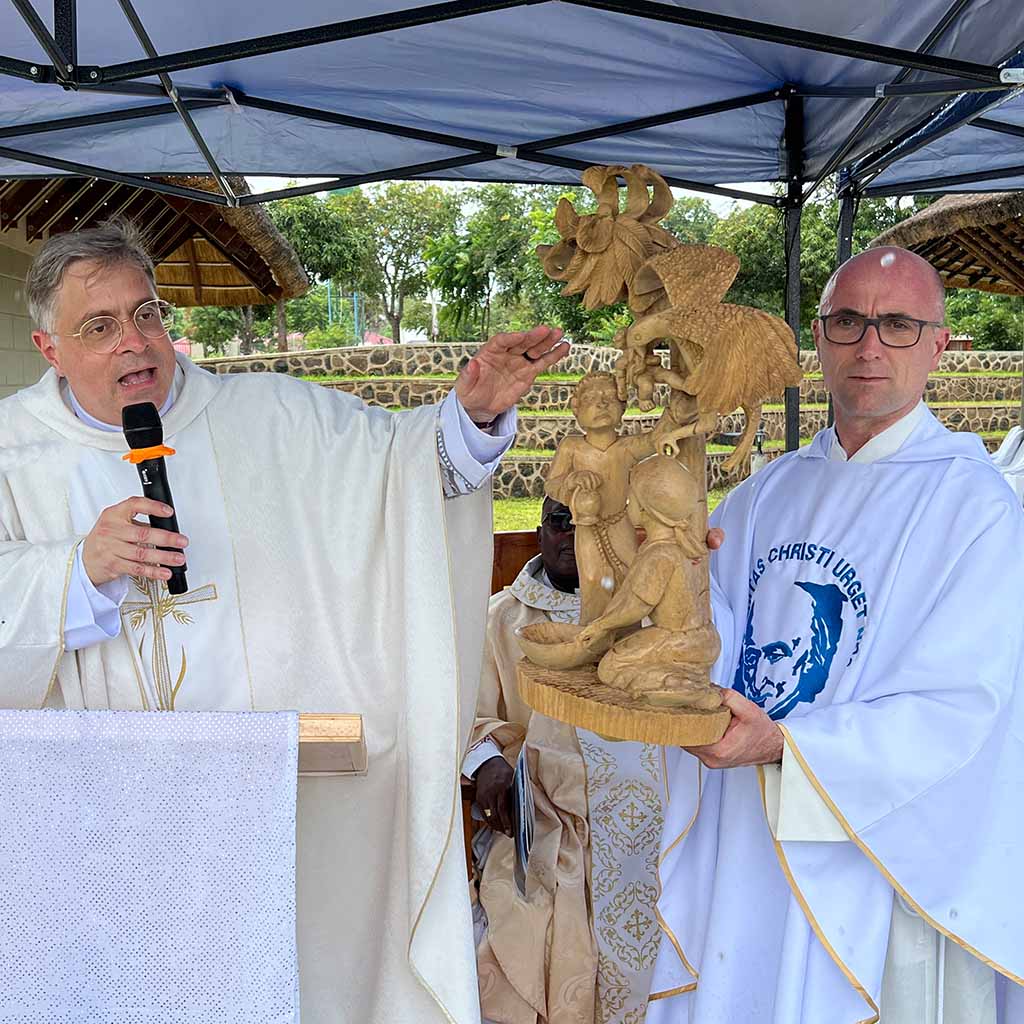
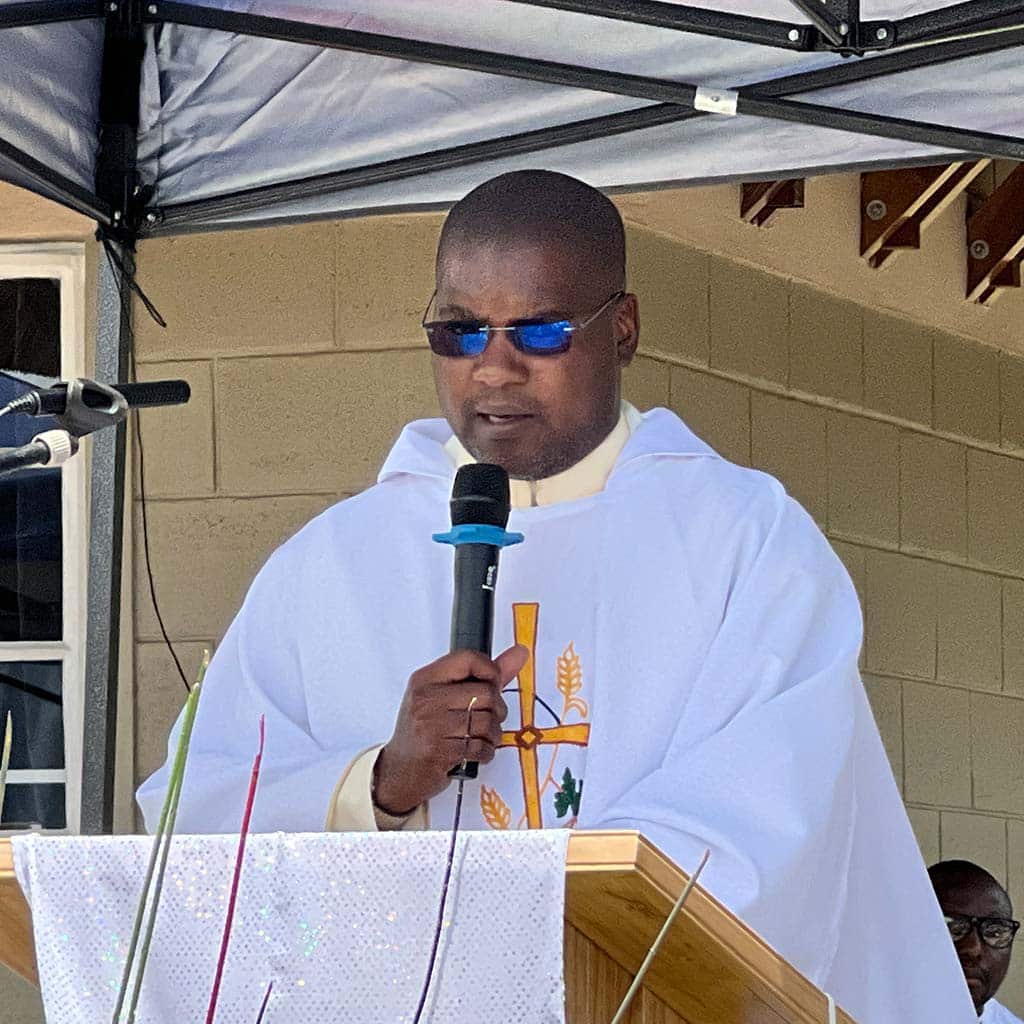
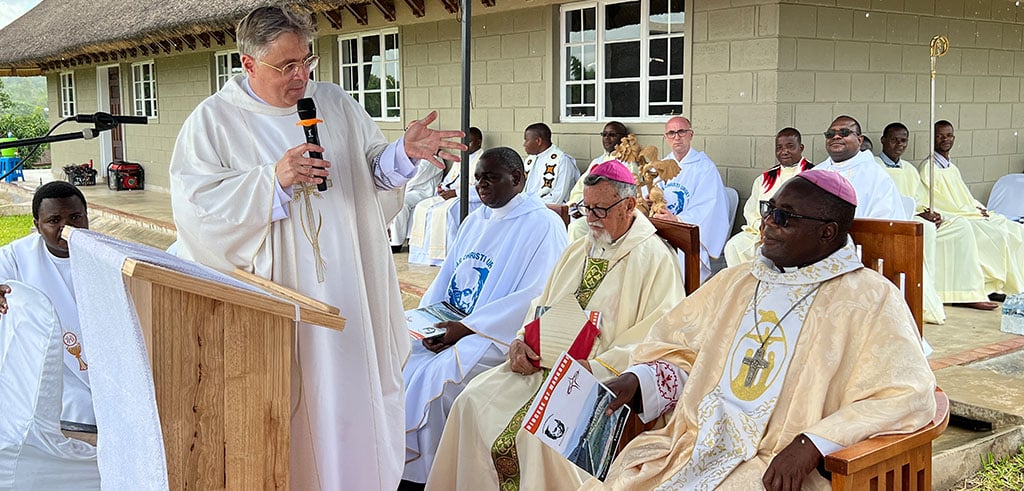
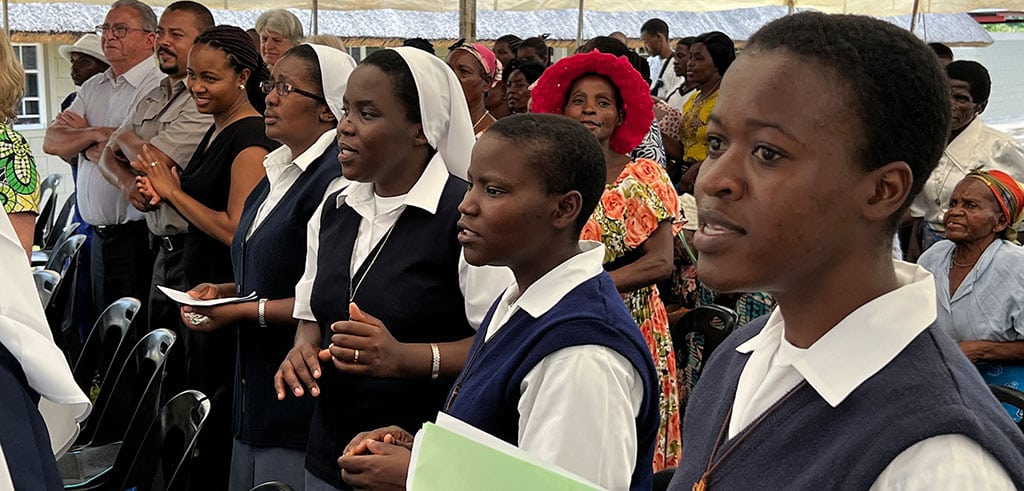
Provincial Markus Hau presented the confreres with a wooden nativity scene that he discovered during a visit to the Malawian Art Center in Mua. The special feature of this Christmas representation is that a pelican places the divine child in the manger. Like the pelican feeding itself to its young, God gives Himself completely to mankind. In his speech, Fr. Hau invited the confreres to give themselves totally for the people. “Balaka should not be a secluded place, but open to people so that they can become fully human,” the provincial stressed.
Carrying the Message of Jesus
In Lilongwe, Archbishop George Desmond Tabala emphasized that Jesus was both message and messenger. “We in following him are to carry him and his message,” the archbishop said, adding, “That means bringing hope to the people.” In doing so, the archbishop referred to the high suicide rate in Malawi and the lack of prospects.
Urgently, George Desmond Tabala warned against falling into self-sufficiency and keeping the gates closed. Having a heart for the people gives the church its right to exist. He therefore asked the Pallottines:
“Let us walk together. – Let us walk this path together.”
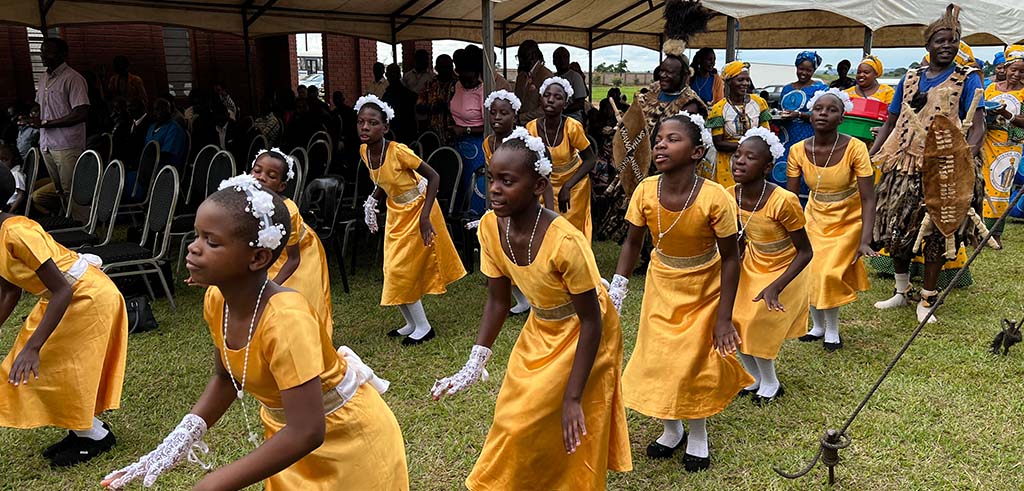
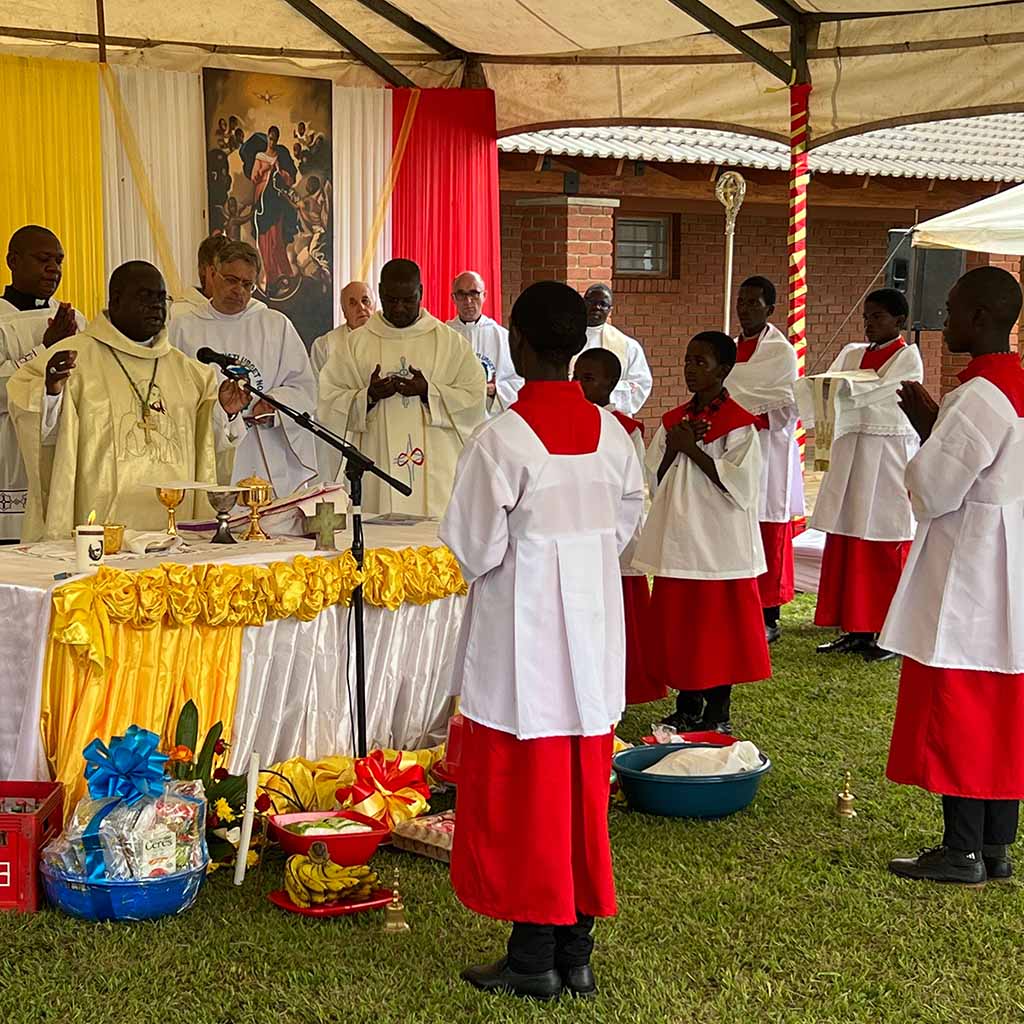
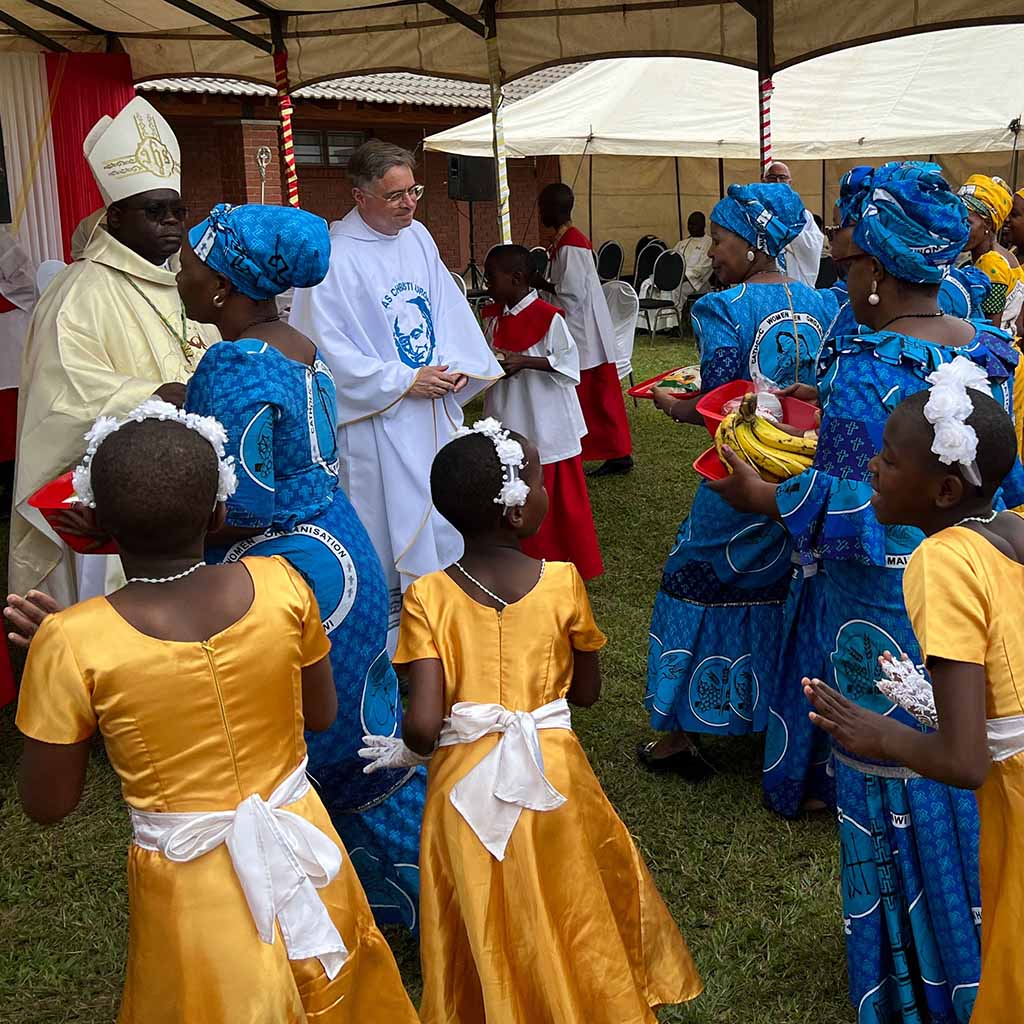
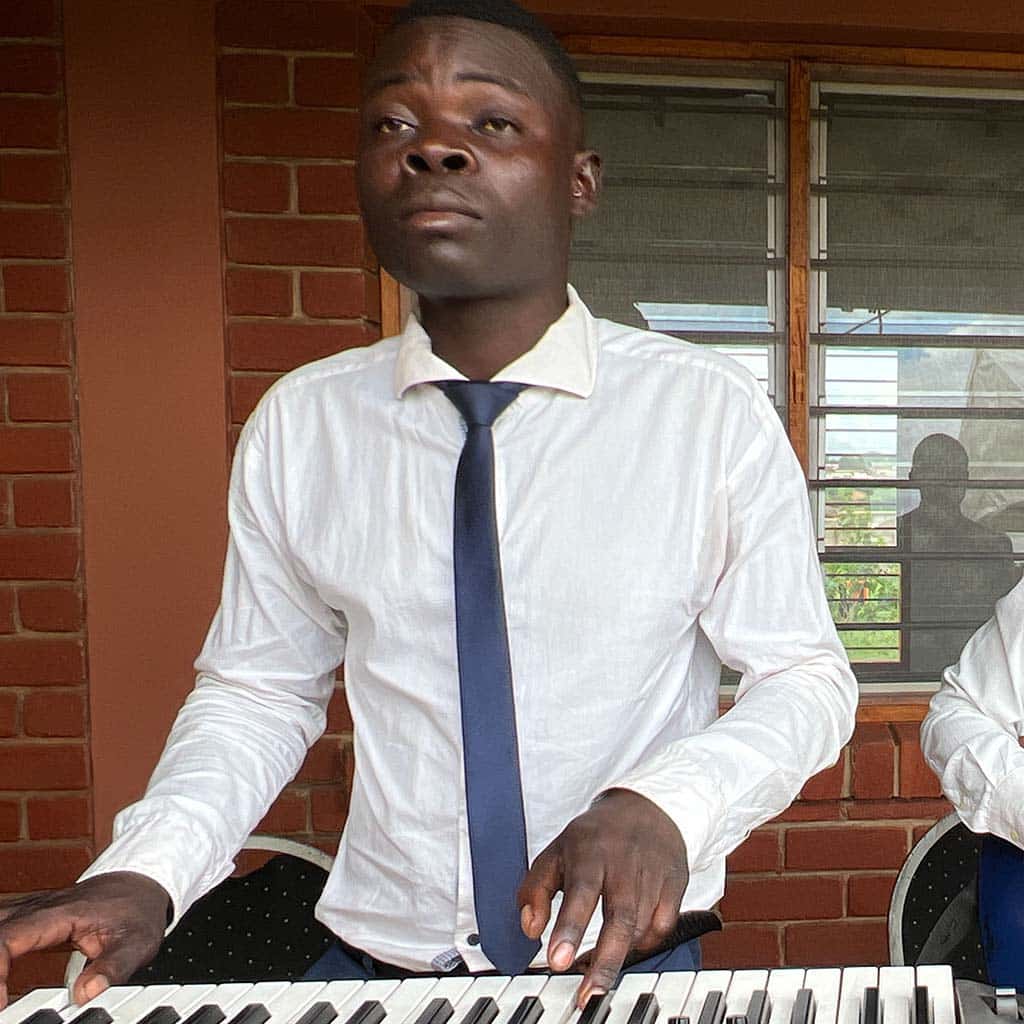
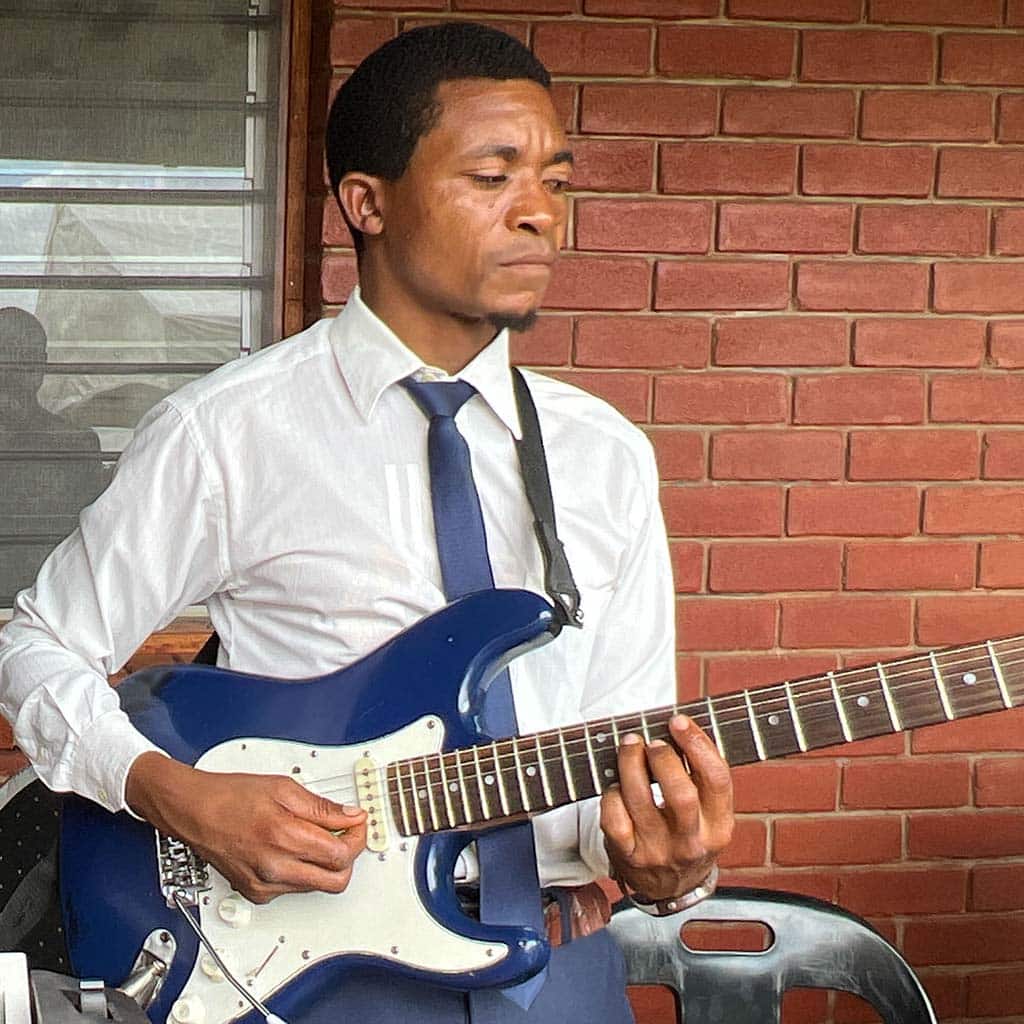
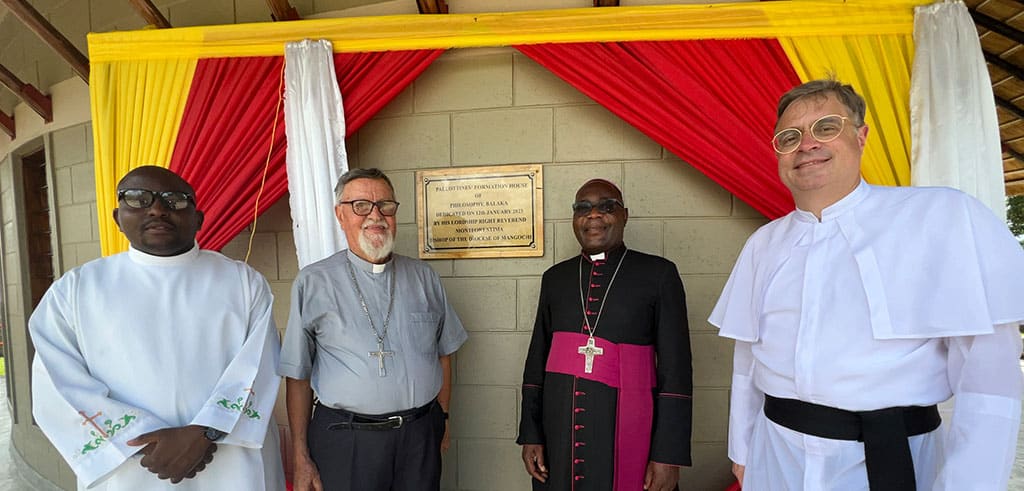
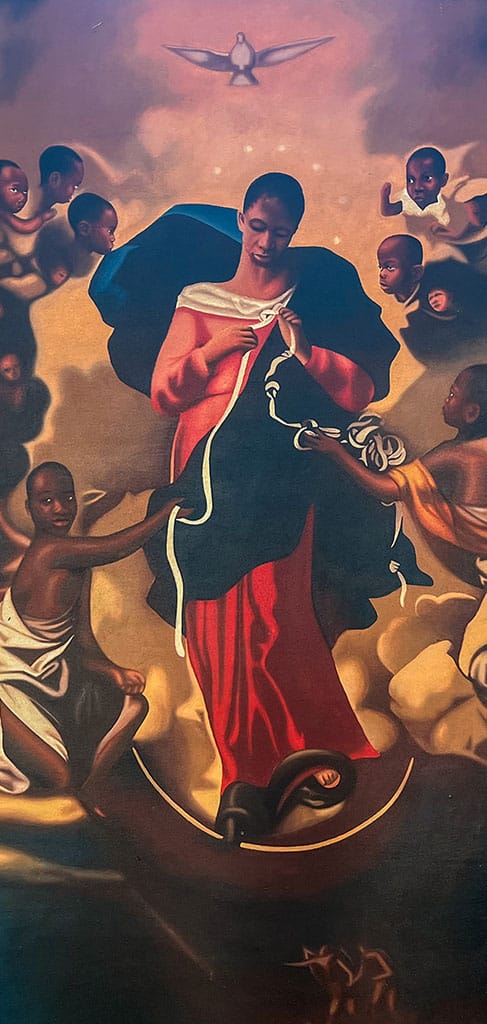
„Our Lady Undoer of Knots“
As a symbol that people can also find a place to live in Lilongwe, a special copy of the image of “Mary Undoer of Knots” from the Catholic pilgrimage church of St. Peter in Augsburg, Germany, has been brought to Lilongwe. The former Provincial Fr. Helmut Scharler had the picture painted in African style by the Malawian artist Kappamula M.C. The church in Lilongwe has now also been consecrated to Mary Undoer of Knots.
Strengthening people in their hopelessness
“May Our Lady Undoer of Knots strengthen people in their hopelessness and hardships,” Provincial Fr. Markus Hau wished. In doing so, he took up Mary’s question to the angel, “How will this happen?” This question, so human, finds an answer in the power of the Highest, which comes through Mary and through all people. People should be able to encounter this power and find trust, the Provincial said. He wished all the confreres to let themselves be “urged by the love of Christ” in the spirit of St. Vincent Pallotti. A relic of the saint should remind them of this.
Information
Pallottines in Malawi
At the moment there is one Father living and working in Balaka and one in Lilongwe, two Fathers in Kapathika and another Father in Mzuzu. Currently, there are also four postulants in Balaka. In total, the community in Malawi has eleven Fathers, four perpetually professed Brothers and 20 students. However, they do not all live and work in Malawi, but also in South Africa, Kenya, Italy and Germany.
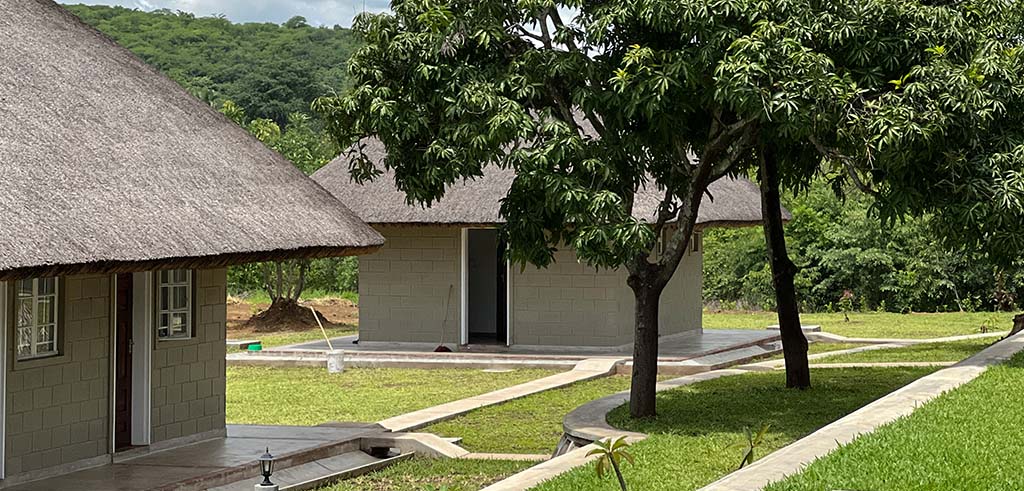
The building in Balaka includes four residential blocks with rooms for 20 students and four rooms for confreres. There are also two community houses with kitchen, dining room, etc. Centrally located at the beginning of the complex is the circular church. At the moment, there are four students on site, accompanied by Fr. Francis Chibota, studying philosophy at the nearby ICI – Intercongregational Institute. In February, six more postulants will begin their training there.
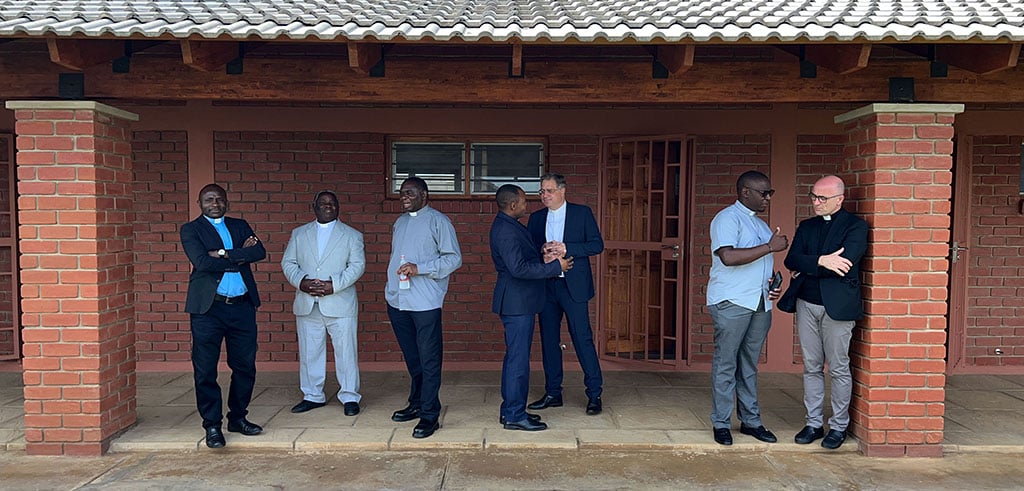
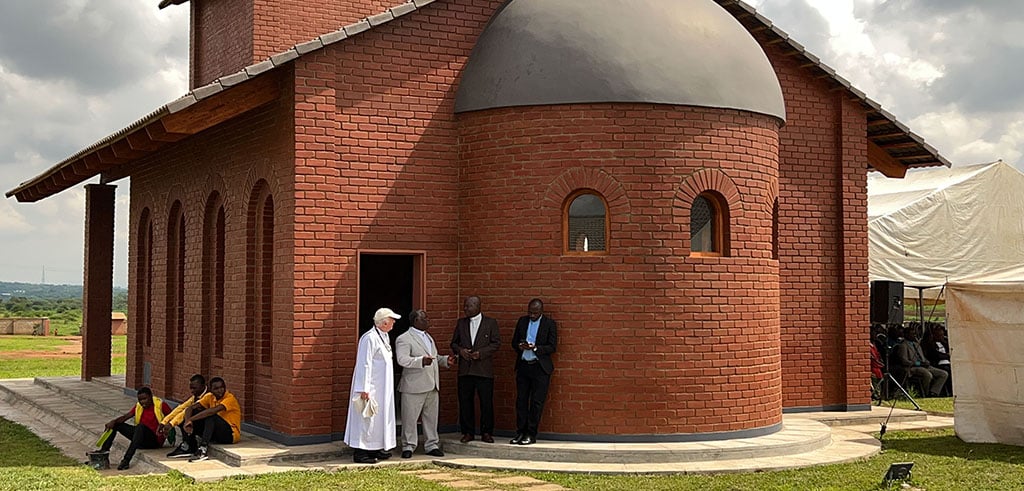
In Lilongwe there is space for three confreres and guest rooms. Fr. John Mangwele is still alone on site. He will now enter discussions with those responsible in the diocese as to how he can contribute to the diocese. Possible fields are youth work and / or pastoral care for marriages.
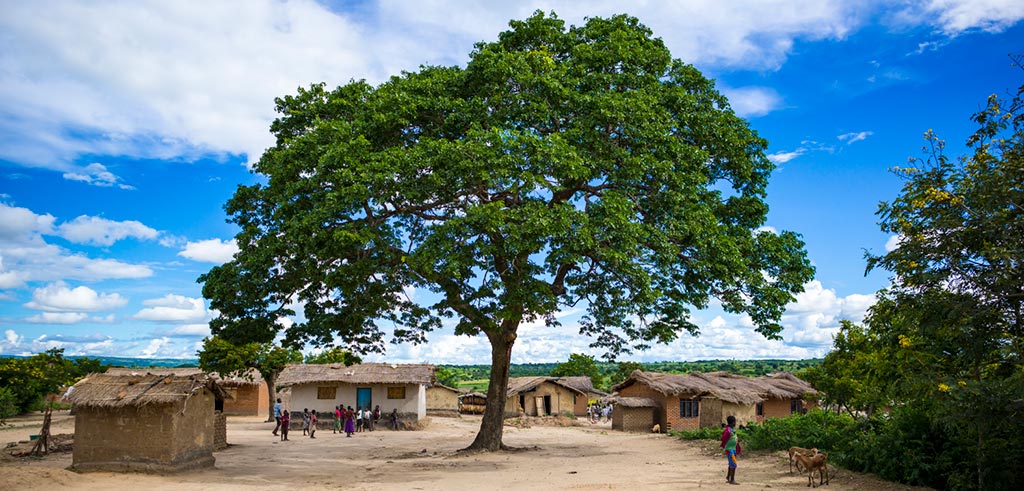
Malawi is about one third the size of the Federal Republic of Germany and lies between the African countries of Tanzania, Mozambique and Zambia. In the northeast is the well-known Lake Malawi with its colourful fish wealth, and in the north and west are mountain ranges with an altitude of up to 2606 metres. There are wildlife areas and national parks. “The warm heart of Africa” – as Malawi is also called, is one of the poorest and least developed countries in the world. Every second person there lives below the poverty line. Population growth, corruption and HIV/Aids are major problems for the people. As 20 percent of the grain in Malawi comes from Russia, the people are currently affected by the Ukraine war, grain shortages and hunger. We Pallottines are also involved in the fight against hunger.
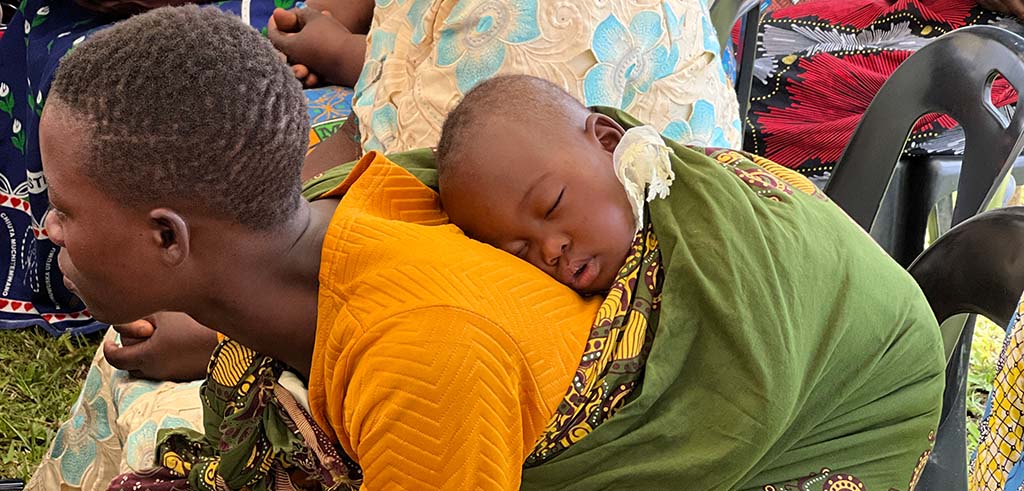
Photos: Br. Bert Meyer
Share this post…
Das könnte Sie auch interessieren
Recommended


